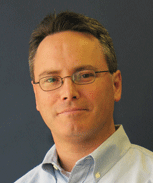In the dedication of Brendan Behan’s New York, the Irish playwright and onetime Borstal boy wrote: “To America, my new-found land: the man that hates you hates the human race.” You can find these words on a plaque in front of Manhattan’s Chelsea Hotel. Within its infamously friendly confines, Behan wrote his New York book in 1963 at the tail end of a New York theatrical triumph and terminal bar hop that secured his international fame even as it began his final, physical unraveling. As his wife feared, the alcohol and the acclaim, not in that order, would prove his undoing. Behan chased his demons, like many before, since and to come, to the bottom of a bottle.
That sentence of his has followed me around most of my adult life. In my leaky memory it has for years been erroneously translated: “To New York: he who hates you, hates people,” thus denying my fellow nationals west of the Hudson Behan’s besotted affections.
I’m reminded of his kind dedication as New York considers again its unfortunate role as the preferred target in the global war of Islamic restoration. A recent car-bomb attempt in Times Square did not achieve the desired mayhem owing only to the incompetence of the plot’s point man. We all know that New York may not be so lucky the next time.
Was it my imagination, or did New Yorkers treat the next few days more tenderly than is their usual fashion? The day after the attempt, humanity was scarce on the steps before St. Patrick’s Cathedral, normally a crazy bustle of both native and tourist. Later, like many commuters homeward bound on subway or rail car, I wondered if my affairs were truly in order, in case New York might suffer the same fate as London or Madrid. It seems morbid to ponder, and it is. But it’s a necessary calculus in this early part of the 21st century.
Where will it all end? You hate the world indeed when you hate New York, the capital city of everybody. How do you respond to such a thing? What combination of military strength and common-sense soft power will bring us to a resolution of this clash of civilizations? The fact that it is only a tiny percentage of people within the Islamic world that seeks to do such indiscriminate harm does not reduce the threat or the anxiety on the sidewalks of New York. It’s hard to discern a handshake of peace and fellowship at the end of the subway tunnel we’re traveling through these days, and our own contributions to the great clash are often obscured by nationalistic apologies.
But let’s not forget that such ill times do come to an end, sometimes with surprising grace and speed, and remember too our pal and lover of New York, Brendan Behan. Before he was a famous playwright, Behan himself was a most incompetent bomb maker engaged in his small part of a terror war against the British empire, raised on hatred of the same, nurtured on the daily violence permitted against the underclass and the imperial sub-species. He added his somewhat comical share to the depraved violence in Ireland that would take decades more to expiate. It is hard to imagine Ireland ever reduced again to that contagion. Perhaps some day soon this age of global terror will likewise begin to edge into the welcome forgetting of history.
I guess the best we can do is get on with our lives with as little attention to the terror as possible—without succumbing to rancor or anxiety, without surrendering too much of ourselves and our society to fear. That’s what New Yorkers are doing. When I scan the hues and dispositions on the faces of the people of New York I pass on our sidewalks, I don’t bother conducting a one-man biometric scan. Who will I stop and demand papers from? These are my neighbors. He who hates us, and wishes us harm, hates people. And he truly wins if I join him in that terrible performance.








